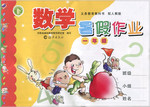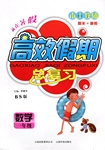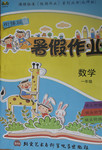
We all have weaknesses and strengths—no matter who we are .Some get sick easily.
Some are 36 people in communication, struggling with 37 .
Sometimes weaknesses seem to outweigh (胜过)the strengths and sometimes it’s the other way around. 38 ,facing huge limitations, many people tend to 39 it as just bad luck ---but not everyone. Those who rise over their weaknesses can still manage to 40 extraordinary things.
I 41 a school prize –giving ceremony and the guest speaker was Andrew Becroft, 42 had a severe stutter (结巴 ) as a child . 43 allowing this to limit him , he chose to overcome it. Now he is a famous judge . Not only 44 he become successful, but he did so in a profession 45 he had to speak before others regularly. Had he not worked on his 46 ability, it would have been very limiting to his success in life and work.
Many people face far huger limitations, such as loss 47 legs or arms , being born extremely poor, 48 you do. But whatever the limitation, you’ll 49 find people who have overcome it. Helen Keller, who fell 50 and lost her sight and hearing at 19 months old, worked hard to be a famous woman with great 51 . Mark Inglis lost both his legs in a mountain climbing accident, 52 has since climbed Mt. Everest.
If one of them had told you what they hoped to achieve, you would have nodded kindly while 53 thinking to yourself that they had no chance . And yet the results speak for 54 .
Though most of us will never have to face such challenges , yet most of us will never achieve to the 55 that these people have either if we never seriously think of what we can do.
| 【小题1】 |
|
| 【小题2】 |
|
| 【小题3】 |
|
| 【小题4】 |
|
| 【小题5】 |
|
| 【小题6】 |
|
| 【小题7】 |
|
| 【小题8】 |
|
| 【小题9】 |
|
| 【小题10】 |
|
| 【小题11】 |
|
| 【小题12】 |
|
| 【小题13】 |
|
| 【小题14】 |
|
| 【小题15】 |
|
| 【小题16】 |
|
| 【小题17】 |
|
| 【小题18】 |
|
| 【小题20】 |
|
【小题1】A
【小题2】C
【小题3】C
【小题4】B
【小题5】D
【小题6】D
【小题7】B
【小题8】B
【小题9】A
【小题10】C
【小题11】D
【小题12】C
【小题13】B
【小题14】A
【小题15】B
【小题16】C
【小题17】B
【小题18】A
【小题19】C
【小题20】B
解析【小题1】考查形容词。与上文“有些人容易得病”衔接,此处自然是人们的弱点,“不善交际”即在交际方面“没有希望”的。
【小题2】考查名词。因为他们不善交际,所以在“人际关系”上要很费力。
【小题3】考查副词。通常情况(generally)下,面对极大缺陷时,往往接受(accept)它,认为是自己运气不好,可并非所有的人都这样。
【小题4】考查动词。见38解析。accept ... as ...承认…为…。
【小题5】考查动词。rise over weaknesses克服自己的弱点。句意:那些能从自己的弱点上站起来的人也能去的不同寻常的东西。achieve取得;实现。
【小题6】考查动词。attend a ceremony参加仪式。
【小题7】考查连词。此处所选之词引导定语从句,代替Andrew Becroft作主语。
【小题8】考查介词。43 allowing this to limit him , he chose to overcome it.这两句之间是转折关系,所以用instead of。
【小题9】考查动词。此处是部分倒装,所用助动词应与but 后分句一致。
【小题10】考查连词。此处所选之词引导定语从句且在从中做地点状语。
【小题11】考查动词。结合上文可知他是个a severe stutter,所以他努力提高的是“说”的能力。这句话是虚拟语气。
【小题12】考查介词。此处of表示动宾关系。
【小题13】考查连词。与前面的far huger相呼应。
【小题14】考查副词。无论缺陷多大, 你总能找到已经克服了他们的人。两句之间是转折关系。
【小题15】考查形容词。与lost her sight相呼应,可知是生病。
【小题16】考查名词。成为以为取得重大成就的著名女人。
【小题17】考查连词。失去双腿与爬山构成转折。
【小题18】考查副词。think to oneself(心中想,盘算,自思自忖)自然是“默默地”。
【小题19】考查代词。代替前面的the results。
【小题20】考查名词。to the degree 在(极大/某种)程度上.


 暑假作业海燕出版社系列答案
暑假作业海燕出版社系列答案 本土教辅赢在暑假高效假期总复习云南科技出版社系列答案
本土教辅赢在暑假高效假期总复习云南科技出版社系列答案 暑假作业北京艺术与科学电子出版社系列答案
暑假作业北京艺术与科学电子出版社系列答案科目:高中英语 来源:河南省六市2010届高三下学期第一次联合考试英语试卷 题型:完型填空
第二节完形填空(共20小题;每题1.5分,共30分)
阅读下面短文,从短文后各题所给的四个选项(A、B、c和D)中,选出可以填入空白的最佳选项,并在答题卡上将该项涂黑。
I recently heard a story about a very famous research scientist。who was interviewed by a newspaper reporter.He was asked 36 he was able to be so much more creative than the
37 person
He responded that it all came from an 38 with his mother when he wasyoung.He tried to
39 a bottle of milk from the fridge when he lost his firm 40 onl the slippery bottle,spilling
the milk all over the kitchen floor! 41 yelling at him Or scolding him,his mother said,“Rob—
eric,what a great and 42 mess you hav'e made!I have 43 Seen such a huge pool of milk.
Well,the 44 has already been done.Would you like to 45 with the milk for a few minutes
before we clean it up?”
46 ,Robert did.After a few minutes,his mother said,“Robert,whenever you make a
me88 like this,you 47 to clean it up.So,how would you like to do that?We would 48 a
sponge(海绵),a towel or a mop.Which do you 49 ?”He chose the sponge and together they
cleaned up the spilled milk.His mother then said,“You know,what we have here is a difficult experiment in how to 50 early a big milk bottle with 51 hands.Now,let’s discover a way to Carry it without 52 it.”The little boy learned that if he grasped the bottle at the 53 near the lip with both hands,he could carry it 54 .
Wouldn,t it be great if all parents would 55 the example of Robert’s mother?
36.A.why B.when C.whether D.where
37.A.other B.average C.simple D.clever
38.A.idea B.accident C.event D.experience
39.A.open B.put C.remove D.catch
40.A.hold B.hand C.support D.body
41.A.Beyond B.After C.In spite of D.Instead of
42.A.bad B.beautiful C.aiay D.terrible
43.A.never B.already C.hardly D.ever
44.A.experiment B.art C.work D.damage
45.A.swim B.play C.sit D.draw
46.A.However B.Maybe C.Indeed D.Finally
47.A.try B.have C.decide D.want
48.A.make B.clean C.Use D.find
49.A.prefer B.1ike C.Think D.take
50.A.slowly B.quickly C.Slightly D.effectively
51.A.tiny B.big C.Cold D.warm
52.A.10sing B.doing C.Stopping D.dropping
53.A.bottom B.foot C.Corner D.Top
54.A.tightly B.safely C.Successfully D.Slightly
55.A.make B.follow C.Take D.match
查看答案和解析>>
科目:高中英语 来源:2012-2013学年广东省惠州市实验中学高一上学期期中考试英语试卷(带解析) 题型:阅读理解
Different people use different languages. We Chinese speak Chinese, and, most of us are learning a foreign language. But there is another kind of language we need to know --- the language of the body.
All over the world, people “talk with their hand, with their heads and with their eyes.” When Japanese people meet, they bow. When Indians meet, they put their hands together. What do American and British do? Americans are more imformal(不拘小节的) than the British. They like to be friendly. They use first names, they ask questions and they talk easily about themselves. When they sit down, they like to relax in their chairs and make themselves comfortable. British people are more reserved(保守的). They take more time to make friends. They like to know you before they ask your name.
When British or American people meet someone for the first time, they shake hands. They do not usually shake hands with people they know well. Women sometimes kiss their women friends, and men kiss women friends (on one cheek only). When a man meets a man, he just smiles, and says, “Hello.” Men do not kiss each other, or hold hands. Even fathers and sons do not often kiss each other.
【小题1】In the passsage, the writer thinks that body language is ______________.
| A.uselss | B.difficult | C.quite easy | D.important |
| A.different countries hav the same body language. |
| B.different countries have different body anguages. |
| C.people in Asia share the same body language. |
| D.many people only use their body language. |
| A.sit straight | B.never sits down | C.makes fun of you | D.sits freely |
| A.imopssible | B.too easy | C.too difficult | D.slow |
| A.men | B.women | C.British | D.Americans |
查看答案和解析>>
科目:高中英语 来源:2015届广东省惠州市高一上学期期中考试英语试卷(解析版) 题型:阅读理解
Different people use different languages. We Chinese speak Chinese, and, most of us are learning a foreign language. But there is another kind of language we need to know --- the language of the body.
All over the world, people “talk with their hand, with their heads and with their eyes.” When Japanese people meet, they bow. When Indians meet, they put their hands together. What do American and British do? Americans are more imformal(不拘小节的) than the British. They like to be friendly. They use first names, they ask questions and they talk easily about themselves. When they sit down, they like to relax in their chairs and make themselves comfortable. British people are more reserved(保守的). They take more time to make friends. They like to know you before they ask your name.
When British or American people meet someone for the first time, they shake hands. They do not usually shake hands with people they know well. Women sometimes kiss their women friends, and men kiss women friends (on one cheek only). When a man meets a man, he just smiles, and says, “Hello.” Men do not kiss each other, or hold hands. Even fathers and sons do not often kiss each other.
1.In the passsage, the writer thinks that body language is ______________.
A.uselss B.difficult C.quite easy D.important
2.Which of the following is right?
A.different countries hav the same body language.
B.different countries have different body anguages.
C.people in Asia share the same body language.
D.many people only use their body language.
3.If an American friend visits you, he probably _____________.
A.sit straight B.never sits down C.makes fun of you D.sits freely
4.If you want to make a British friend, you may feel it ________________.
A.imopssible B.too easy C.too difficult D.slow
5.Generally speaking, ____________ kiss more often.
A.men B.women C.British D.Americans
查看答案和解析>>
科目:高中英语 来源:河南省六市2010届高三下学期第一次联合考试英语试卷 题型:完型填空
第二节完形填空(共20小题;每题1.5分,共30分)
阅读下面短文,从短文后各题所给的四个选项(A、B、c和D)中,选出可以填入空白的最佳选项,并在答题卡上将该项涂黑。
I recently heard a story about a very famous research scientist。who was interviewed by a newspaper reporter.He was asked 36 he was able to be so much more creative than the
37 person
He responded that it all came from an 38 with his mother when he wasyoung.He tried to
39 a bottle of milk from the fridge when he lost his firm 40 onl the slippery bottle,spilling
the milk all over the kitchen floor! 41 yelling at him Or scolding him,his mother said,“Rob—
eric,what a great and 42 mess you hav'e made!I have 43 Seen such a huge pool of milk.
Well,the 44 has already been done.Would you like to 45 with the milk for a few minutes
before we clean it up?”
46 ,Robert did.After a few minutes,his mother said,“Robert,whenever you make a
me88 like this,you 47 to clean it up.So,how would you like to do that?We would 48 a
sponge(海绵),a towel or a mop.Which do you 49 ?”He chose the sponge and together they
cleaned up the spilled milk.His mother then said,“You know,what we have here is a difficult experiment in how to 50 early a big milk bottle with 51 hands.Now,let’s discover a way to Carry it without 52 it.”The little boy learned that if he grasped the bottle at the 53 near the lip with both hands,he could carry it 54 .
Wouldn,t it be great if all parents would 55 the example of Robert’s mother?
36.A.why B.when C.whether D.where
37.A.other B.average C.simple D.clever
38.A.idea B.accident C.event D.experience
39.A.open B.put C.remove D.catch
40.A.hold B.hand C.support D.body
41.A.Beyond B.After C.In spite of D.Instead of
42.A.bad B.beautiful C.aiay D.terrible
43.A.never B.already C.hardly D.ever
44.A.experiment B.art C.work D.damage
45.A.swim B.play C.sit D.draw
46.A.However B.Maybe C.Indeed D.Finally
47.A.try B.have C.decide D.want
48.A.make B.clean C.Use D.find
49.A.prefer B.1ike C.Think D.take
50.A.slowly B.quickly C.Slightly D.effectively
51.A.tiny B.big C.Cold D.warm
52.A.10sing B.doing C.Stopping D.dropping
53.A.bottom B.foot C.Corner D.Top
54.A.tightly B.safely C.Successfully D.Slightly
55.A.make B.follow C.Take D.match
查看答案和解析>>
科目:高中英语 来源:浙江省模拟题 题型:完形填空
| 完形填空。 | |||
| True forgiveness is one of the most remarkable qualities a human can possess! In the fighting between two countries in the 1970s, a young man was walking from one village to the next when he was 1 by an armed guerrilla (游击队) fighter from the enemy country. The fighter 2 the young man down the hill where he was to be 3 . But a (n) 4 thing happened. The young man, who had 5 military (军事的) training, was able to disarm (解除武装) the fighter. Now, the table was 6 , and it was the fighter who was ordered down the hill. As they walked, 7 , the young man began to reflect on what was happening. Recalling the 8 of his mother, "Love your enemies; do good to those who 9 you." he found he could go no further. He 10 the gun into the bushes, told the fighter he was 11 to go and turned back 12 the hill. Minutes later, he heard footsteps 13 behind him as he walked. "Is this the end after all?" he 14 . Perhaps the fighter had got the gun and wanted to finish him off. But he continued on, 15 glancing back, until his enemy reached him, only to grab him in a hug and pour out 16 for sparing his life. Mercy often wears the face of 17 . And though it usually isn't an enemy in uniform that we are challenged to forgive, we hav 18 for mercy every day. Family members and friends, co-workers and neighbors and even strangers have 19 for our forgiveness. You know who they are. As Mahatma Gandhi said, "The 20 can never forgive. Forgiveness is the attribute (特性) of the strong." Be strong. Forgive. | |||
| ( )1. A. shot ( )2. A. demanded ( )3. A. beaten ( )4. A. amazing ( )5. A. watched ( )6. A. turned ( )7. A. thus ( )8. A. expressions ( )9. A. forgive ( )10. A. packed ( )11. A. free ( )12. A. for ( )13. A. showing ( )14. A. shouted ( )15. A. seldom ( )16. A. marks ( )17. A. awareness ( )18. A. opportunities ( )19. A. need ( )20. A. lonely |
B. murdered B. reminded B. shot B. frightening B. received B. covered B. indeed B. plans B. hate B. dragged B. slow B. into B. waving B. counted B. never B. favors B. kindness B. explanations B. responsibility B. weak |
C. killed C. ordered C. accepted C. inspiring C. accepted C. moved C. therefore C. words C. instruct C. forced C. nervous C. up C. running C. wondered C. always C. thanks C. safeness C. hopes C. patience C. healthy |
D. caught D. required D. driven D. confusing D. suggested D. repaired D. however D. signals D. help D. threw D. eager D. down D. jumping D. argued D. sometimes D. reasons D. forgiveness D. lessons D. energy D. calm |
查看答案和解析>>
湖北省互联网违法和不良信息举报平台 | 网上有害信息举报专区 | 电信诈骗举报专区 | 涉历史虚无主义有害信息举报专区 | 涉企侵权举报专区
违法和不良信息举报电话:027-86699610 举报邮箱:58377363@163.com